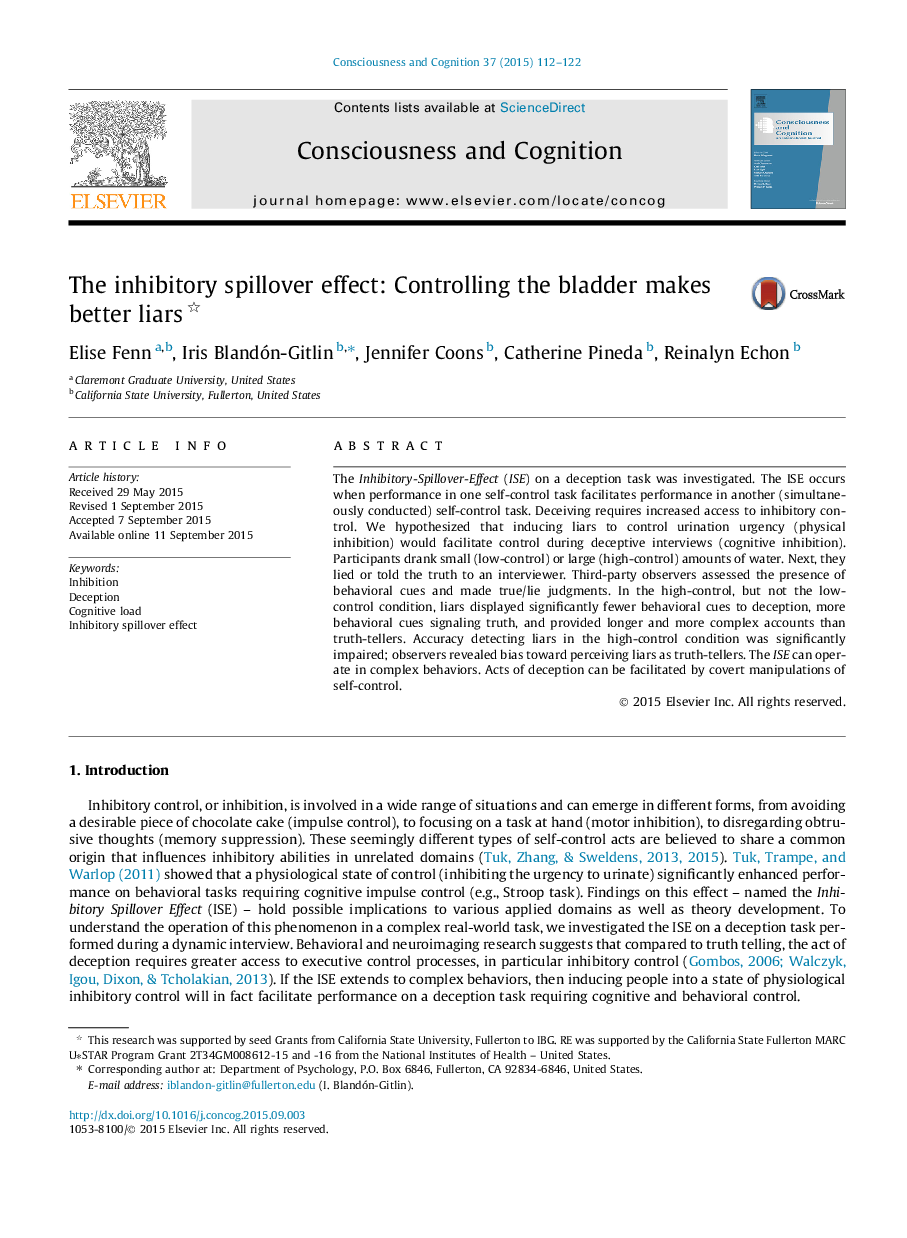| Article ID | Journal | Published Year | Pages | File Type |
|---|---|---|---|---|
| 927545 | Consciousness and Cognition | 2015 | 11 Pages |
•We investigated the inhibitory spillover effect on a deception task performance.•Liars and truth tellers experienced high versus low physical inhibitory control.•Physical inhibitory control benefited cognitive inhibitory control during deception.•Liars in high-inhibitory control showed few signs of deception and seemed truthful.•Liars can successfully use covert self-control strategies to facilitate deception.
The Inhibitory-Spillover-Effect (ISE) on a deception task was investigated. The ISE occurs when performance in one self-control task facilitates performance in another (simultaneously conducted) self-control task. Deceiving requires increased access to inhibitory control. We hypothesized that inducing liars to control urination urgency (physical inhibition) would facilitate control during deceptive interviews (cognitive inhibition). Participants drank small (low-control) or large (high-control) amounts of water. Next, they lied or told the truth to an interviewer. Third-party observers assessed the presence of behavioral cues and made true/lie judgments. In the high-control, but not the low-control condition, liars displayed significantly fewer behavioral cues to deception, more behavioral cues signaling truth, and provided longer and more complex accounts than truth-tellers. Accuracy detecting liars in the high-control condition was significantly impaired; observers revealed bias toward perceiving liars as truth-tellers. The ISE can operate in complex behaviors. Acts of deception can be facilitated by covert manipulations of self-control.
